Are You Loading Your Dishwasher Wrong? These Mistakes Leave Dirty Dishes
From overloading to filter neglect, common loading mistakes lead to dirty dishes and pricey repairs
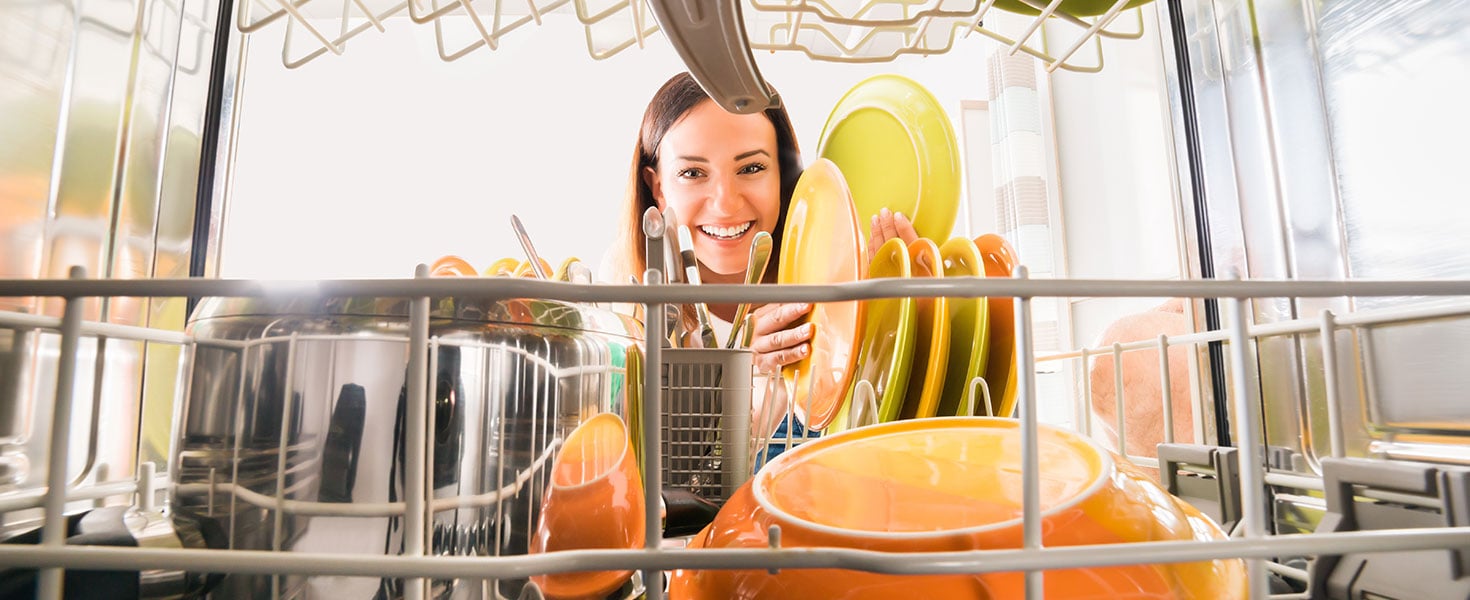
If your dishes come out spotted, streaky, or still dirty, the problem might not be your dishwasher; it could be how you’re loading it. According to Dennis Godynuk, a licensed appliance repair expert with Comfort Appliance Repair of Tennessee, around 70 percent of his service calls come down to simple loading or maintenance issues rather than actual mechanical failures. Most of these mistakes, he says, are completely avoidable once you know what to look for.

Why your dishwasher isn’t cleaning your dishes
The biggest culprit is often an overcrowded load. If the spray from your dishwasher can't reach your dishes, they won't get clean. “I had a client pack their dishwasher so tightly it looked like a puzzle,” Godynuk says. “After reloading with more breathing room, everything came out spotless.”
Hannah Pregont, creative director and appliance expert at AJ Madison, a home appliance retailer, agrees, explaining that overloading a dishwasher blocks water and detergent from reaching surfaces. Instead, leave space between items so that water can circulate freely.
Prerinsing doesn’t help cleaning performance. Both Godynuk and Pregont say prerinsing not only wastes water but can also reduce cleaning performance. Modern dishwashers can detect how soiled the dishes are and adjust accordingly, so prerinsing can interfere with that process. “Over-rinsing wastes water and removes the enzymes in many detergents that break down food,” Godynuk explains.
Blocked spray arms weaken cleaning power. Make sure that large items, such as cutting boards, aren’t blocking the rotating spray arms. A blocked dishwasher spray arm can affect the entire load and cause extra clattering when it bumps into misloaded items.
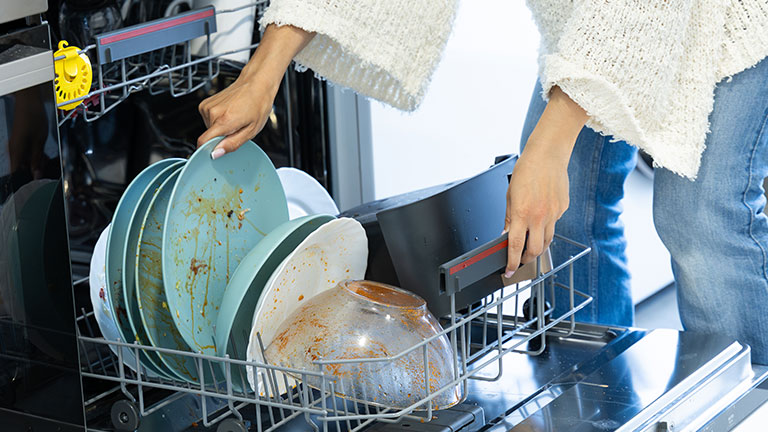
How to know if you’re loading your dishwasher incorrectly
Improper loading can lead to dirtier dishes, costly repairs, and even shorten your appliance’s lifespan. Here are a few signs that suggest you need to rethink your loading habits:
- Stuck-on food. Dishes come out with food still on them.
- Extra noise. You hear clattering or scraping during the cycle.
- Detergent issues. Streaks or leftover detergent on glasses may signal blocked water flow.
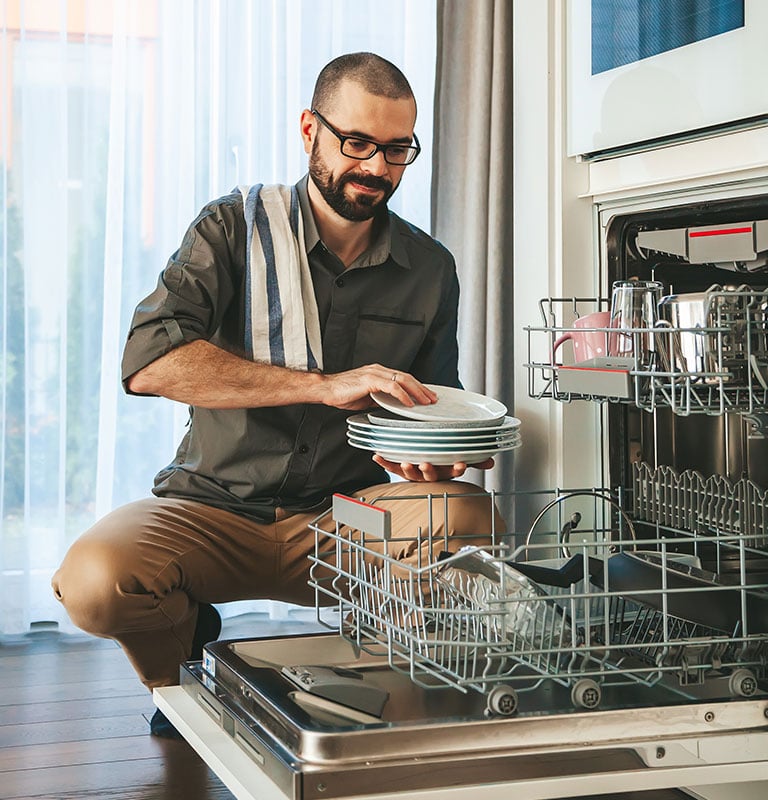
How to load a dishwasher
Face dirty surfaces toward the center. Load plates and bowls facing the center, where the spray arms can reach them directly. Angle soiled surfaces slightly downward and toward the spray arms for optimal cleaning.
Use racks strategically. Place heavy items, such as pans and mixing bowls, on the bottom rack, open-side down. Load the top rack with delicate items—such as glasses and plastics—keeping them away from the heating element. If your dishwasher has a third rack, use it for longer utensils and small lids.
Mix up silverware placement. “Silverware gets the best clean when you mix spoons, forks, and knives in the cutlery basket,” Godynuk says. Mixing prevents utensils from nesting. You can load them handle-up or handle-down. While loading handles up makes unloading easier, loading handles down exposes dirty ends to spray—which ensures a better clean.
Start with hot water. “Before you hit start, make sure hot water is flowing to the dishwasher by running the sink tap until it's hot,” Godynuk says. “A hot water start means your cycle heats up faster and gets dishes truly clean.”
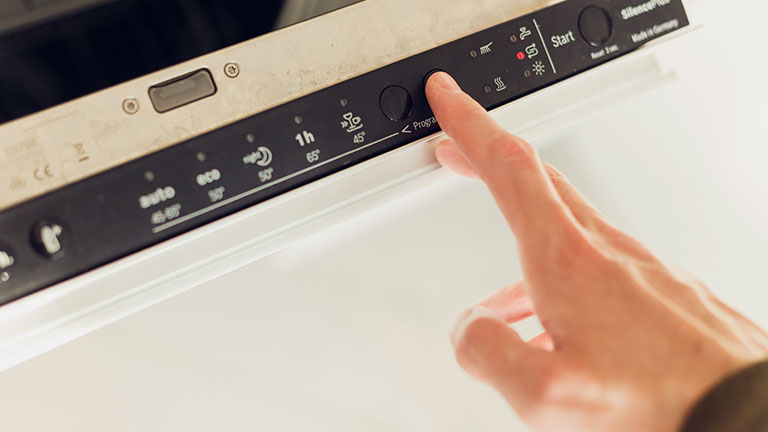
How to avoid expensive dishwasher repairs
Both experts emphasize one crucial step that many people overlook: cleaning the filter monthly.
“A clogged filter means water pools at the bottom and redeposits grime on your dishes,” Godynuk explains. “I recommend checking it every month. That simple step will avoid the funk that makes you think your dishwasher needs repair.”
Pregont adds that regular filter cleaning keeps your dishwasher running efficiently and prevents food particles from redepositing on clean dishes. Most filters are easy to remove and can be rinsed under warm water.
Keep clean spray arms clean, too. Check and rinse the spray arms to remove built-up gunk or mineral deposits.
Additionally, Godynuk suggests running a dishwasher cleaning tablet through an empty cycle. “You'll keep the filter and spray arms free of grime, which means better cleaning and fewer service calls down the road,” he says.
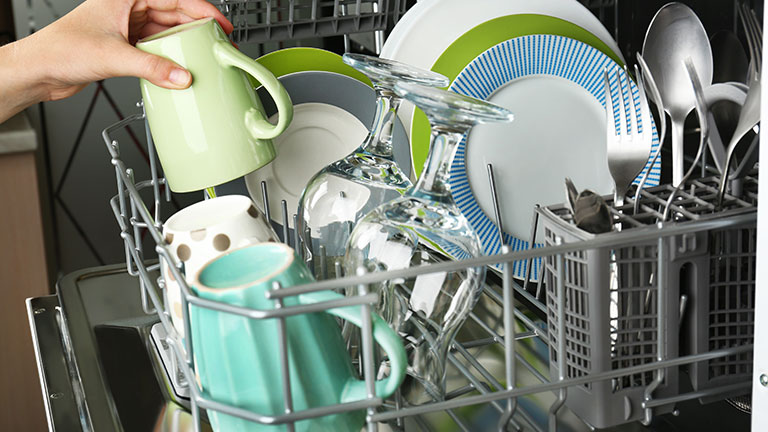
Small tweaks lead to long-lasting results
Using the proper loading techniques can extend your dishwasher’s lifespan and maximize both energy and water efficiency. These small adjustments don’t take extra time—but they can save you from unnecessary repair bills and the frustration of rewashing dishes. Your dishwasher is built to handle the dirty work; you just need to load it correctly and let it do its job.
